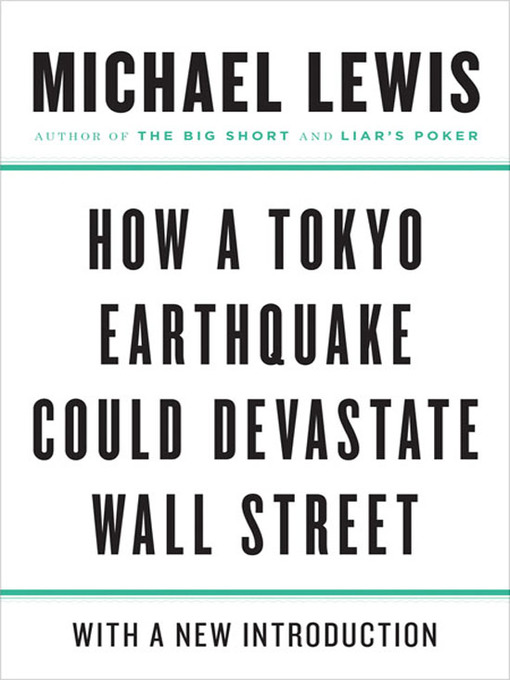In 1989, Michael Lewis reported on the potential effects of an earthquake in Japan on world financial markets. His insights are once again timely, and they are presented here as a stand-alone essay with a new introduction: "Real Versus Imaginary Japanese Earthquakes."
"How a Tokyo Earthquake Could Devastate Wall Street" appears in Michael Lewis's book The Money Culture.

